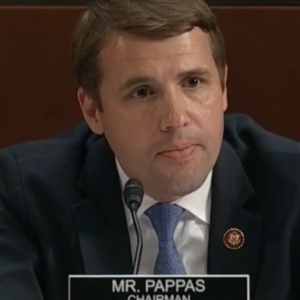Rep. Chris Pappas (D-N.H.) was one of a handful of Democrats last week who helped reintroduce the so-called “Freedom to Vote Act,” a sweeping federal law that would override the Granite State’s election rules. From requiring early voting to preventing voter I.D. mandates, the Pappas-backed bill would impose federal requirements on locally-run elections.
“Washington Republicans continue to look for ways to allow even more dark money into our elections, but we can put an end to big money politics by passing the Freedom to Vote Act. This legislation would limit the influence of dark money and corporate special interests and protect Granite Staters’ freedom to vote,” Pappas said.
“I’m especially proud that it includes provisions I’m fighting for from the DISCLOSE Act that require dark money groups to disclose who their donors are and stop billionaires and corporations from secretly buying our elections. We must put the power of our democracy back in the hands of the people, and I urge my colleagues to join me in supporting this common-sense legislation.”
Supporters of free speech disagree, noting the DISCLOSE Act would reveal the names and information of far more average citizens than “billionaires and corporations.” For example, supporters of LGBT-oriented classroom instruction in local schools who donated to the cause could have that support publicized. The same with red-state residents who support pro-choice causes, or blue-state conservatives backing pro-life issues.
But the DISCLOSE Act is just a small part of the more than 500-page bill. As legal scholar David French at National Review wrote, the bill contains “startling encroachments on state authority to conduct state elections, including stripping from states their ability to draw their own congressional districts and requiring states to grant felons the right to vote after they’ve completed their sentences.”
The legislation would also:
— Force New Hampshire to send postage-paid mail-in ballots to every voter who requests them, rather than having Election Day voting supplemented by absentee ballots;
— Require New Hampshire to have at least 13 days of early voting, including weekends, and to count ballots that come in late;
— Give millions of public dollars to political candidates to use on campaign staff, TV ads, attack mailers, etc.
The bill’s advocates acknowledge it would require states like New Hampshire to have online voter registration and same-day voter registration, all without voter ID. Instead of proof of identification, the Pappas bill says New Hampshire election officials “shall treat an individual desiring to vote in person in an election for Federal office as meeting such voter identification requirement if the individual presents the appropriate State or local election official with a sworn written statement, signed in the presence of the official by an adult who has known the individual for at least six months under penalty of perjury, attesting to the individual’s identity.”
No proof, no photo, just a signed piece of paper.
All four members of the New Hampshire delegation supported this legislation when it went down to defeat in the previous Congress. Former New Hampshire Secretary of State Bill Gardner and current Secretary David Scanlan both opposed it.
“Our position hasn’t changed,” Scanlan told NHJournal when the bill was defeated in 2021. “This bill would be a federal takeover of New Hampshire’s elections.”




